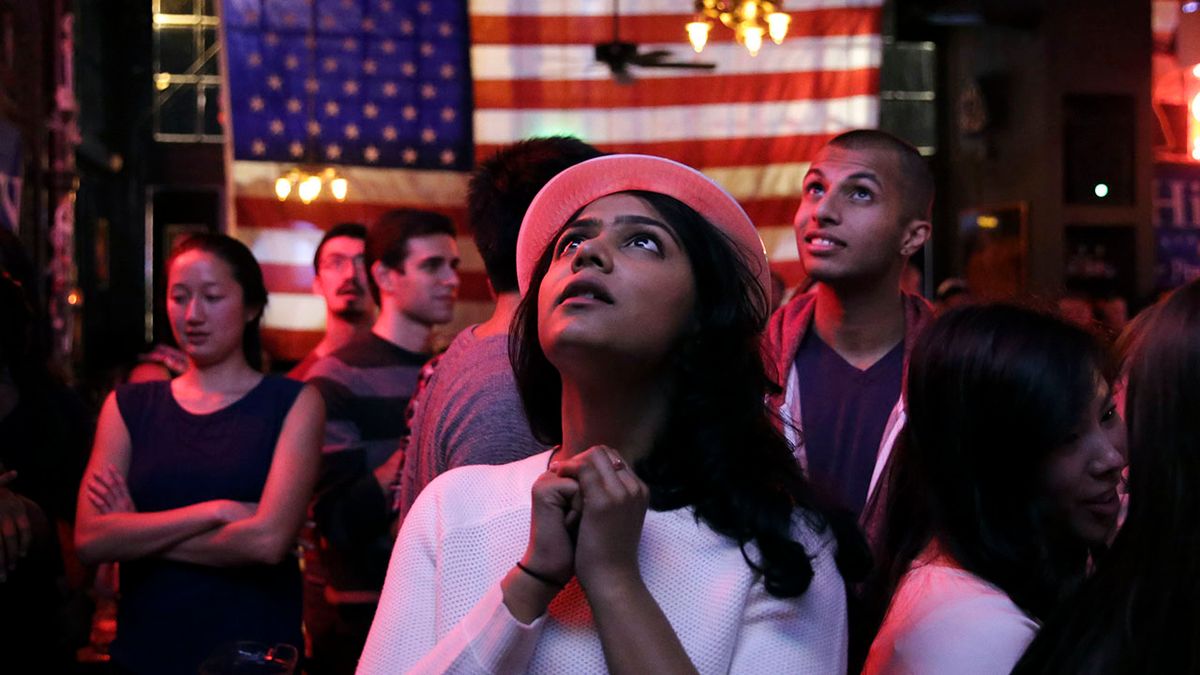Is Trump supporters’ reluctance to speak to pollsters skewing poll numbers for the second time?

A few minutes every morning is all you need.
Stay up to date on the world's Headlines and Human Stories. It's fun, it's factual, it's fluff-free.
According to a new report from CloudResearch, a research company run by a team of academics, a significant number of voters who support Trump could be keeping their opinions to themselves when approached by pollsters.
Per their data, 11.7% of Republicans say they would not report their true feelings for their preferred candidate if asked. By contrast, just 5.4% of Democrats say the same thing, suggesting Trump supporters could be underrepresented in polling data.
The latest national polling averages from FiveThirtyEight show that Joe Biden is retaining his substantial lead over Trump, leading by an average of 8.8 percentage points on August 29.
President Donald Trump has repeatedly called polls that show him to be trailing fake. He’s also suggested that polls could be underrepresenting his support, even as reports indicate that in private Trump admits that things aren’t looking good.
As for Democrats, while some strategists are concerned that the polling numbers could lead to a false sense of security within the party and among voters, others say that there are significant differences between this year’s election and 2016 – a year in which Hillary Clinton’s substantial lead of six to seven percentage points in mid-October proved to matter little on Election Day.
One of the biggest differences could be that Biden is significantly less unpopular nationally than Clinton was. According to an NBC/Wall Street Journal poll released in July, just 33% of the country views Biden in “very negative” terms.
The same poll in 2016 found that in July of that year, 43% of Americans looked at Clinton as “very negative.”
Poll background
CloudResearch suggests that one of the main drawbacks of political polls as they are normally run is that there is little empirical evidence of whether the received data reflects the actual feelings of voters.
While a margin of error of two to three percentage points usually accompanies poll numbers to make it clear that sampling errors could be skewing overall sentiment, CloudReserach is concerned about whether a larger number of people could be altering true voter sentiment with their reluctance to be truthful or forthcoming in their answers.
To help tease out how many people could be giving untruthful answers in polls, instead of simply asking respondents if they lied, they first asked respondents how comfortable they would be in giving their true opinion to pollsters before asking who they supported.
“Our rationale for this approach was that there’s a major difference between admitting you just lied and admitting to being genuinely concerned about disclosing your preferred candidate,” they wrote in their findings.
Interestingly, in addition to the higher number of Republicans who said they would be reluctant to admit support for their preferred presidential candidate, a significant portion also said they would deliberately lie to pollsters if given the chance.
According to their data, 10.1% of surveyed Trump voters said they were likely to be untruthful on phone surveys. For Biden supporters, that number was just 5.1%.
A repeat of 2016?
Following Clinton’s surprise loss in the 2016 election, there was a lot of hand wringing from Democrats as to what went wrong and how to prevent it from happening again. One of the areas given a hard look was that of polling numbers.
In several important swing states leading up to the election, such as Wisconsin and Michigan, Clinton was leading by a substantial margin, with some polls giving her a 6.5% to 8% lead in Wisconsin and nearly a 4-point lead in Michigan.
In Ohio, similarly, Clinton was polling ahead of Trump by several percentage points going into the election. Trump ended up winning Wisconsin and Michigan by less than one percentage point and took Ohio by over 8%, giving him a boost in electoral votes that helped catapult him to the presidency.
Although polling institutions like Pew Research are adamant that polls are largely correct representations of overall support at that particular time, they admit that there were methodological errors with some polls in 2016 – especially with local-level data that skewed its polling toward college-educated voters who were more likely to favor Clinton.
For Michael Moore, the prominent liberal filmmaker who warned of Trump’s strong level of support in the rural Midwest in the lead-up to the 2016 election, Democrats should not be totally confident that Trump is sure to lose this year.
In a recent Facebook post, Moore asked his followers whether the country was ready for another surprise victory and urged fellow liberals to get out the vote if they were intent on pushing Trump out of office.
“I’m warning you almost 10 weeks in advance. The enthusiasm level for the 60 million in Trump’s base is OFF THE CHARTS! For Joe, not so much,” he wrote, adding that he was posting to “provide the reality check again.”
While Moore did refer to polling that shows Trump narrowing the gap in some swing states, critics say that Trump still has an uphill battle against his Democratic challenger, especially due to the fact that many now take him seriously as a candidate.
“No one is underestimating Trump’s chances as some did in 2016,” wrote NPR’s senior political correspondent Domenico Montanaro. “Democrats see him far more as a clear, present and urgent threat who very well could win reelection,” he added.
Have a tip or story? Get in touch with our reporters at tips@themilsource.com




Comments ()